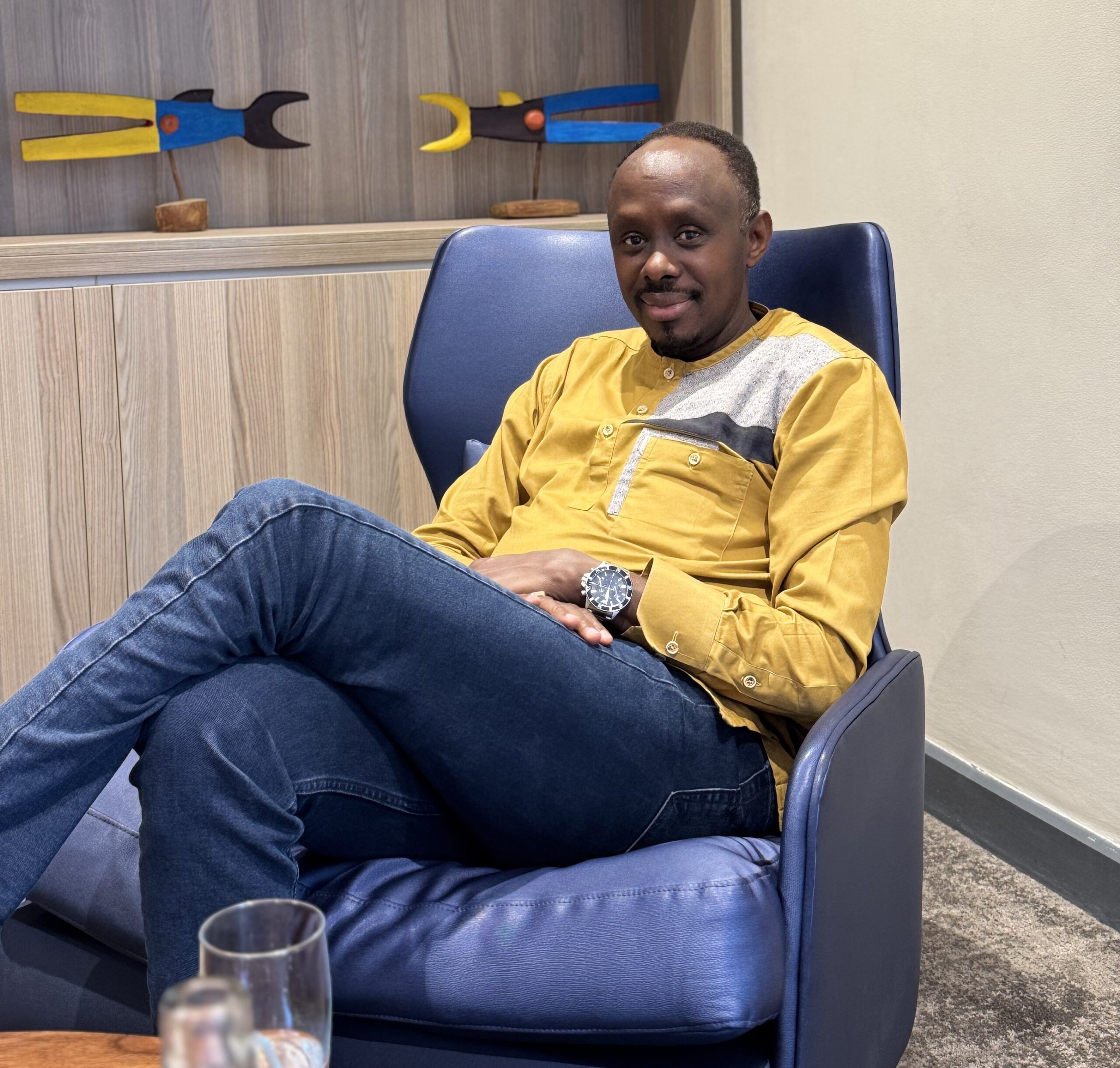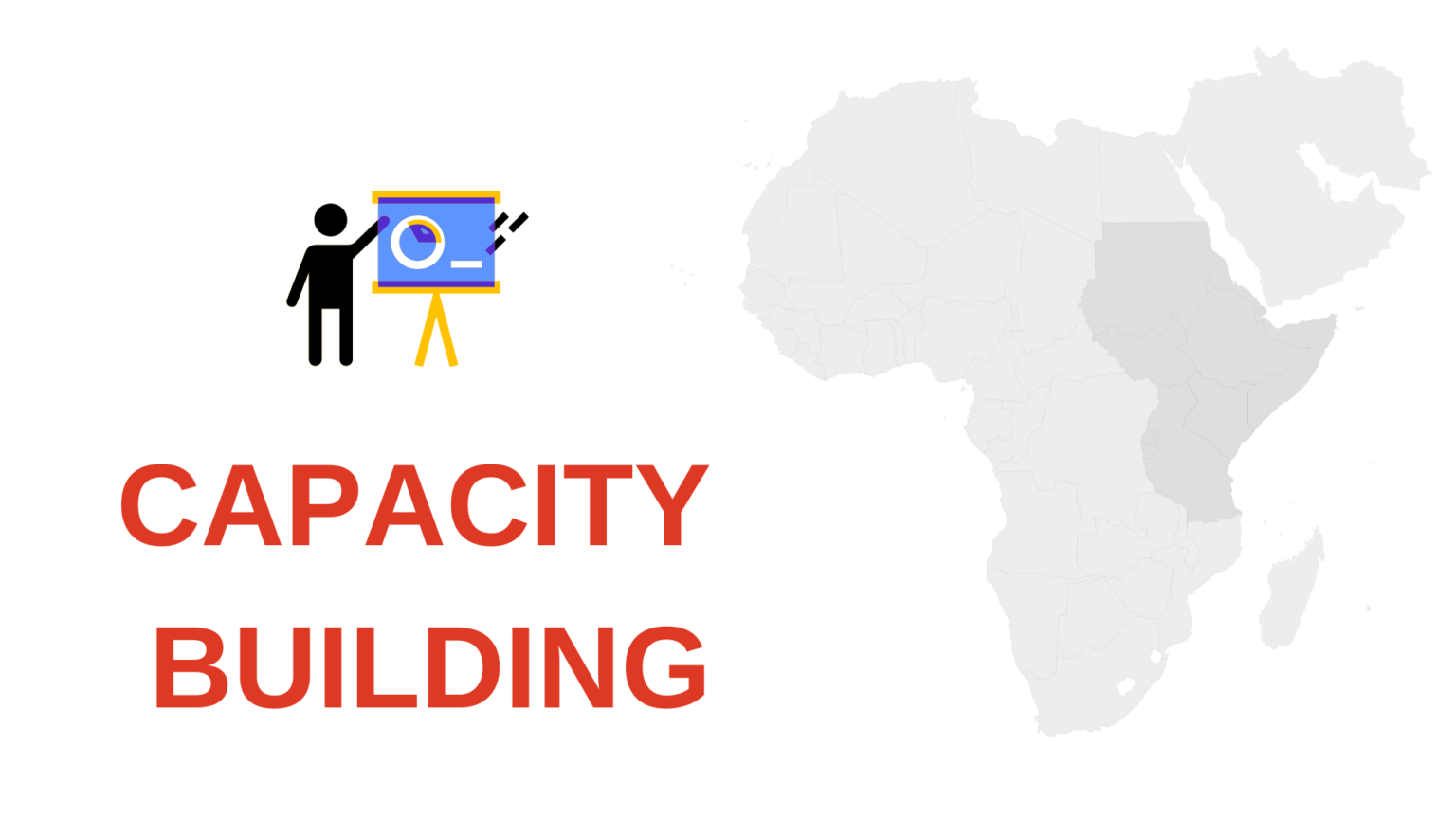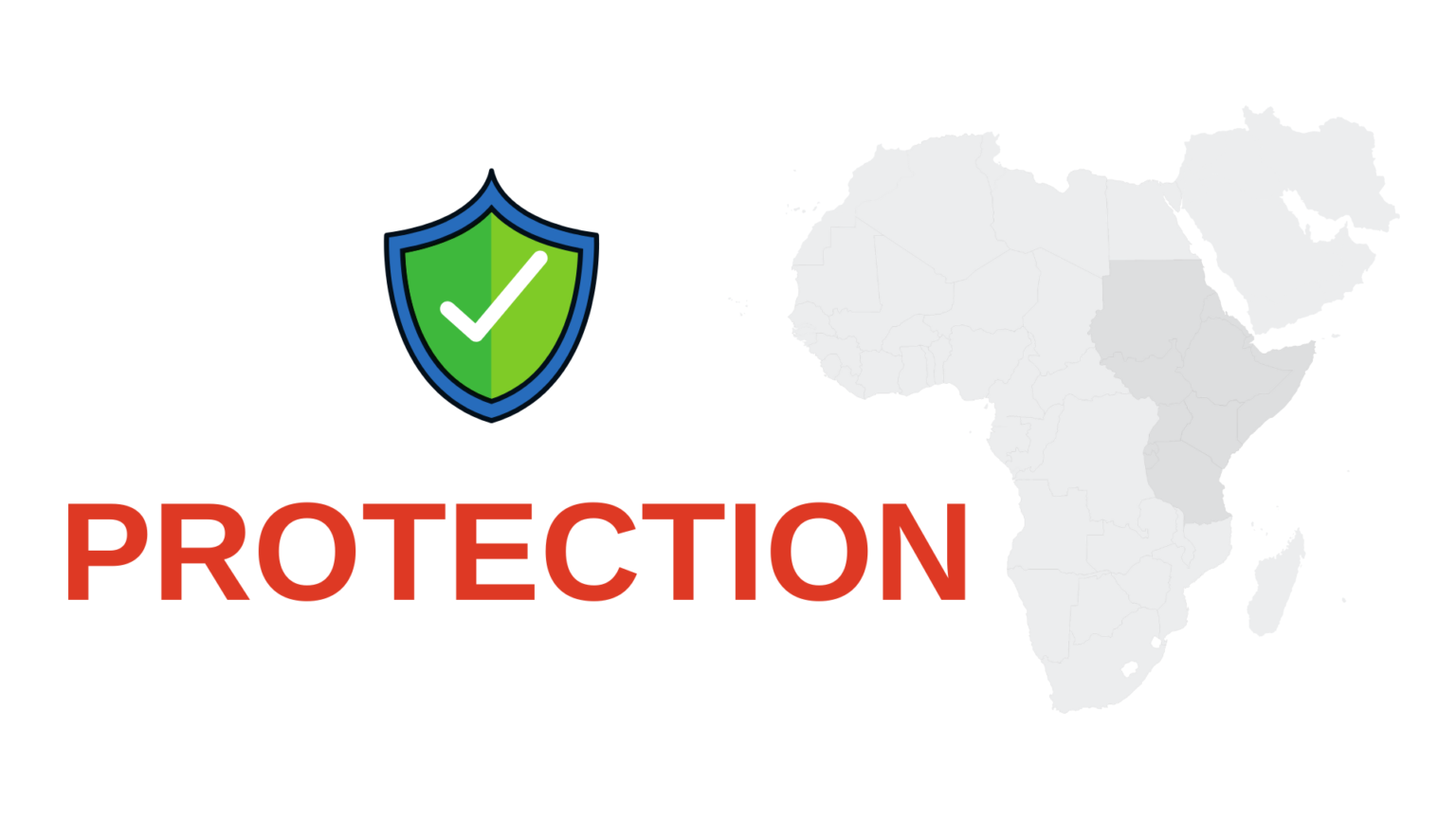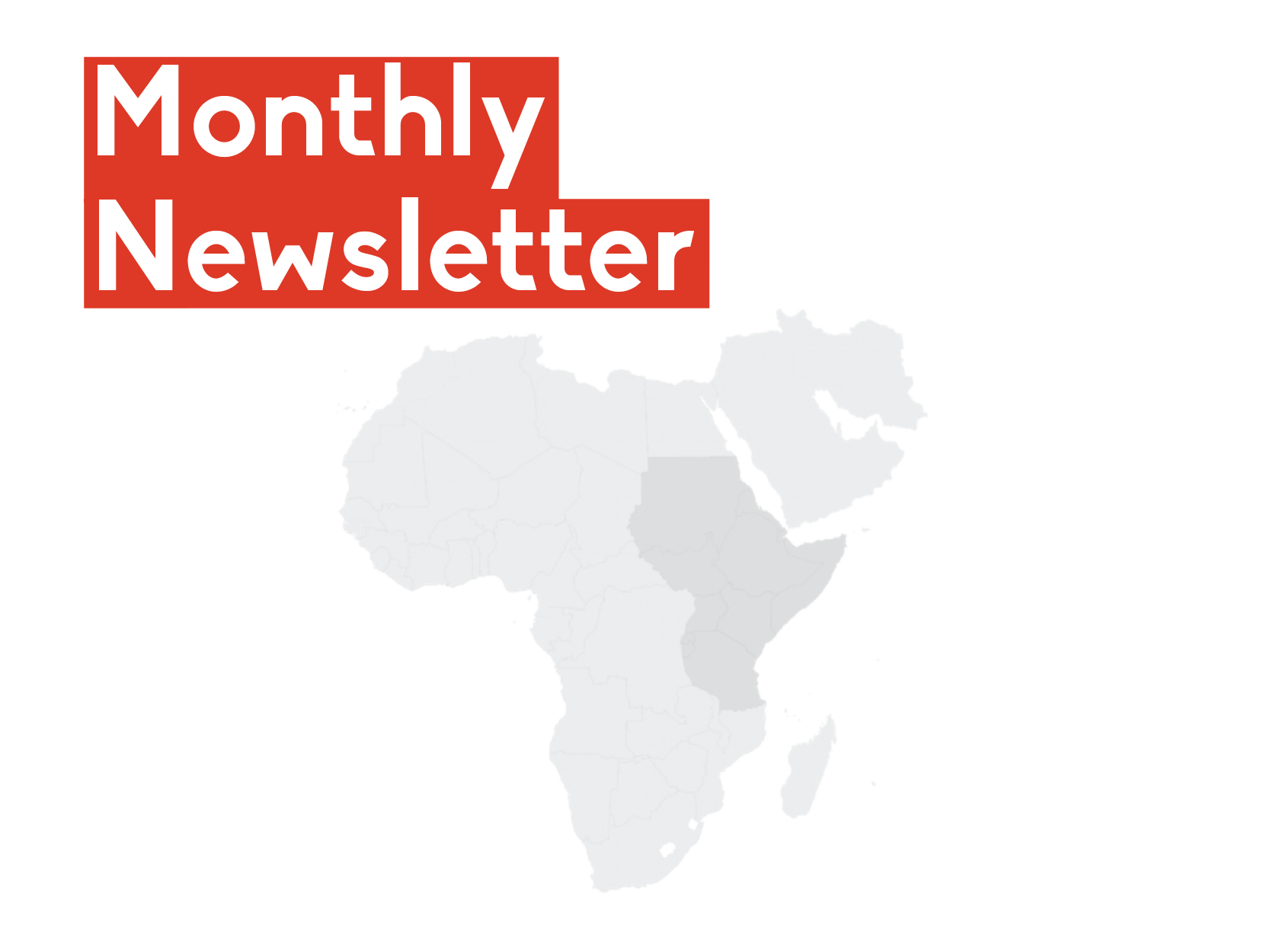Hello Friends,
March was a month of engagement
and reflection on the urgent needs of human rights defenders (HRDs) across our
region. As geopolitical dynamics shift and crises intensify, the threats facing
HRDs have grown more complex—demanding coordinated responses and sustained
solidarity. It was in this spirit that I led a series of conversations and
convenings aimed at strengthening protection mechanisms, amplifying voices in
exile, and reaffirming our collective commitment to human rights.
I began the month by convening
ambassadors, Heads of Cooperation, and civil society leaders to deliberate on
the urgent need to protect and empower HRDs in the East and Horn of Africa, as
well as the Great Lakes region. In the face of evolving global foreign policy
and the increasing demand for emergency protection support, HRDs remain under
immense pressure—particularly those working in conflict-affected areas. We
discussed the importance of equipping defenders with the tools and support they
need to sustain their work and the vital role of collective action in building
a more enabling environment. I am deeply grateful to the partners and HRDs who
honoured our invitation and contributed to these crucial conversations.
The conflict in the Democratic
Republic of Congo (DRC) continues to weigh heavily on our hearts at
DefendDefenders and AfricanDefenders, particularly in light of the escalating
violence in Eastern DRC. On 27 March 2025, I hosted a
breakfast meeting with exiled and recently relocated HRDs from the DRC. The
HRDs shared powerful testimonies of displacement, resilience, and the
strategies they are using to sustain their activism while in exile. Our ongoing
efforts to support the establishment of a national coalition of HRDs in DRC remains
a priority. This initiative is rooted in research validated during a workshop
held in Kampala in October 2024, which brought together HRDs from the DRC
alongside the Chairperson of the African Commission on Human and Peoples’
Rights, Hon. Prof. Remy Ngoy Lumbu. While progress has been delayed due to the
worsening security situation, I reaffirm that plans to establish the coalition
will proceed, with necessary adaptations to the evolving context.
As they forge a path forward away
from home, I urged them to remain steadfast in their activism and to let their
voices carry the hope and resilience of their homeland and of those they were
forced to leave behind.
As always, DefendDefenders
remains steadfast in its commitment to protect those who risk their lives for
freer civic spaces. I invite you to turn the pages for details of our
engagements this month and encourage you to join us as we look to the future with
renewed dedication.
Hassan Shire
Executive Director, DefendDefenders
Chairperson, AfricanDefenders
Human Rights Defender of the Month: Andrews Kananga

Andrews Kananga’s long-standing
relationship with DefendDefenders began in 2009, when he met Executive Director
Hassan Shire and was invited to his first strategic meeting in Kampala, Uganda.
That meeting marked the start of a strong collaboration rooted in a shared
commitment to advancing human rights in the region. Over the years, Andrews has
participated in numerous trainings and strategic convenings organised by
DefendDefenders, deepening his expertise in areas such as human rights
protection, digital security, and advocacy.
In 2012, he was elected by
Rwandan human rights defenders to establish and lead the Rwanda Human Rights
Defenders Network (RHRDN), a member of the East and Horn of Africa Human Rights
Defenders Network. As the Chairperson, he has worked closely with
DefendDefenders on protection initiatives, needs assessments, and support for
HRDs from both Rwanda and Burundi. In 2019, Andrew was recognised by
DefendDefenders for his consistent contribution to the regional human rights movement.
Andrews’ commitment to justice is
deeply personal; etched in Rwanda’s troubling past and shaped by the country’s
painful history of conflict and human rights violations. The 1994 genocide
against the Tutsi in Rwanda, which claimed over one million lives in just 100
days, left a deep scar on the nation and its people. It was a period marked by
mass atrocities, systemic human rights violations, and a breakdown of justice and
accountability. For Andrews, who grew up witnessing the aftermath of this dark
chapter, the experience was profoundly formative. The history of injustice,
displacement, and the suffering endured by countless families—including his own
community—sparked in him a determination to be part of the solution. Driven by
a vision to prevent such atrocities from ever happening again, he chose to
pursue law as a means of championing justice and amplifying the voices of the
vulnerable. His early involvement in human rights clubs, student-led debates, also
exposed him fully to what it means to defend the
rights of the most vulnerable and marginalised communities.
“So, a history of injustice, massive violations of human rights, decades of misery in refugee camps in neighbouring countries for our people, oppression and hatred, greatly impacted me growing up and, I thought by becoming a lawyer, I can contribute, and I am glad that currently, I am living the dream. “
For over two decades, Andrews Kananga has stood at the intersection of law and justice in Rwanda, championing access to legal services for the most vulnerable. His journey began in 2004, right after graduating from law school, when he was appointed National Legal Advisor to the National Service of Gacaca Courts. These community-based courts were established to try lower-level perpetrators of the 1994 genocide against the Tutsi and promote truth-telling, accountability, and reconciliation. In his role, Andrew offered legal guidance, trained Gacaca judges—respected community members selected for their integrity—and oversaw performance evaluations, contributing directly to Rwanda’s post-genocide justice and healing processes.
From 2008 to 2010, Andrews worked with the Danish Institute for Human Rights (DIHR), where he played a pivotal role in establishing and coordinating the Secretariat of the Legal Aid Forum (LAF), a national network of legal aid providers and human rights organisations. When the Secretariat became fully functional, he was appointed Executive Director—a position he has held since 2010. Under his leadership, LAF has grown into Rwanda’s largest legal aid and human rights organisation, serving thousands of clients annually through in-court representation, a national call centre, and innovative ICT-based legal solutions. The Forum brings together 36 member organisations—including national and international NGOs, professional associations, university legal aid clinics, and faith-based institutions—and plays a key role in promoting access to justice by offering free legal assistance, conducting legal education campaigns, and advocating for policy and legislative reforms that uphold human rights and the rule of law.
“LAF has grown
exponentially, we increased reach, services and influence for the benefit of
the vulnerable and maginalised communities, we provide legal aid services to
Rwandans through legal representation in courts of law and about, 400
vulnerable clients are represented by our team of lawyers per year. We also use ICT to deliver legal
services through a customised call centre staffed by lawyers. In addition to
speaking directly with our legal team, citizens can access Unstructured
Supplementary Service Data (USSD) and Interactive Voice Response (IVR) systems,
which offer self-guided legal education and support. “
Despite the challenges of limited
funding, shrinking civic space, and the risks faced by HRDs in Rwanda, Andrews
has championed collective action, coalition-building, and the development of
protective mechanisms—including a legal aid fund for journalists and HRDs at
risk. He continues to advocate for a national legal aid law in Rwanda and the
formal recognition and protection of HRDs.
Andrews’ vision is one where
legal aid is institutionalised, justice is accessible to all, and HRDs are
recognised, equipped, and empowered to thrive—both in Rwanda and across the
African continent.
Updates from DefendDefenders

Between 3
to 6 March 2025, DefendDefenders trained 20 staff of Legal and Human Rights
Centre (LHRC). The training took place in Dar Salaam and covered aspects of
physical and digital safety and security management. Sessions on mental health
and wellbeing were added to the training to ensure a more holistic engagement.
LHRC operates in an environment where laws and regulations limit civic space
and are applied to government critics and human rights activists. Staff of LHRC
from the Headquarters and Kinondoni branch enhanced their knowledge and skills
in safety and security management as well as self-care. They interacted with
the tools of risk assessment and reviewed their organisational security plan
during the training.
From 11-15 March, the Coalition Ivoirienne des
Défenseurs des Droits des Humains (CIDDH), represented by Coordinator Marthe
Coulibaly and Hub Cities Protection Officer Antoine Tanoh, undertook a learning
visit to AfricanDefenders. CIDDH is a member of the Pan African Human Rights
Defenders Network member and coordinator of the Abidjan hub city. Marthe participated
in case management training. The visit also facilitated knowledge exchange with
HRD coalitions in Uganda, including the National Coalition of Human Rights
Defenders Uganda and coalitions of exiled HRDs from Burundi and Sudan.
From 11-14 March 2025, AfricanDefenders hosted
a delegation of 6 from CIVICUS which included, four We Risers from its first
cohort with representation from Benin, Nigeria, Kenya, and Togo. They were
accompanied by CIVICUS Program Coordinator Takaeadza Tafirei and Learning &
Communications Intern Sumaiya Suleiman. WeRise is a CIVICUS initiative aimed at
promoting and protecting freedom of peaceful assembly as both a fundamental
right and a tool for expanding civic space. During their three-day visit, the
group engaged in a session on international and regional human rights
mechanisms, intended to equip the HRDs with strategies to navigate bureaucratic
advocacy platforms effectively. The We Risers also engaged with visiting
defenders from Côte d’Ivoire, Marthe Coulibaly and Antoine Tanoh. Marthe
underscored the importance of building sustainable and inclusive solidarity
networks to ensure continued advocacy and collective strength during periods of
repression.
Between
10–14 March 2025, DefendDefenders conducted a Ttaala follow-up training in the
Albertine Region, covering the districts of Gulu, Arua, Hoima, Biiso, and one
virtual session. Participants were drawn from the following organisations:
HURIFO, MEMPROW, LACWADO, AID, Kwataniza, Honecric, and the Albertine Focal
Person – FHRI. The main objective of the Ttaala follow-up was to provide
post-training technical assistance and mentorship to HRDs who participated in
the 2024 Ttaala Capacity Building Program. The training was a success, with all
participants actively implementing at least two additional skills they acquired
during the initial training.

Throughout March, DefendDefenders was active at
the UN Human Rights Council, during its 58th session (HRC58) that ran until 4 April. Building on kick-off engagements in late February by our team
in the High-Level Segment, we led advocacy for the extension of UN
investigations on South Sudan. As our letter highlighted, multiple crises translate
into multiple risks of violence and violations in the country. With South
Sudanese HRDs, we raised the alarm to push the Council to
formulate a meaningful response. With now significant risks of relapse
into large-scale conflict. All actors must be mobilised to prevent this
disastrous outcome.
In addition to South Sudan, we enhanced
advocacy on Ethiopia, including through our oral statements – which also addressed Sudan,
Cameroon, Kenya, DRC, and Burundi.

DefendDefenders
managed a total of 125 requests for assistance under the emergency protection
program. 37 (30%) out of the total requests managed were offered the
appropriate support interventions. A
total of 159 individuals positively benefited indirectly from the awarded
grants. 39 requests for assistance were declined due to organisational mandate
limitations and sharing of inaccurate facts. 40 requests were referred to other
protection service providers for assistance as per their criteria and mandates. 9 requests are still under screening.
Country Updates:
ETHIOPIA
Following sustained advocacy and
a joint statement by over 30 states at the 58th UN Human Rights Council ,
Ethiopia’s Agency for Civil Society Organizations (ACSO) lifted
suspensions on the Ethiopian Human Rights Defenders Center (EHRDC), the
Consortium of Ethiopian Human Rights Organizations (CEHRO), and the African
Initiative for Women in Africa (AIWA) on 3 March 2025, after mediation efforts
led by the Ethiopian Human Rights Commission (EHRC). While this marked a
positive step, civil society actors warned the reinstatements may be temporary,
with civic space remaining tightly restricted and legal frameworks unclear. In
recent months, prominent HRDs have fled the country amid harassment, while
authorities—including Prime Minister Abiy Ahmed—have publicly smeared EHRC and
NGOs, labelling them “foreign agents.” This increasingly repressive environment
undermines democratic oversight and weakens protections for HRDs.
On 9 March 2025, security forces detained
Yohannes Tessema, a Benishangul-Gumuz Regional Council representative and
member of the Boro Democratic Party (BDP). Before the arrest, authorities
stopped Yohannes and two other council members at Asosa Airport while en route
to Addis Ababa to discuss the petition. The arrest came days after BDP
petitioned Ethiopia’s Council of Constitutional Inquiry on 24 February 2025,
challenging recent amendments to the Benishangul-Gumuz Regional Constitution.
The amendments expanded council seats from 99 to 165, dissolved three electoral
districts, and created five new ones. BDP argues that the council lacks the
authority to make such changes, which should fall under the jurisdiction of the
House of Federation and the National Election Board. On 6 March 2025, the Benishangul-Gumuz
Regional Government Communications Affairs Bureau accused BDP leaders of
inciting unrest and dismissed their petition, warning that authorities would
take legal action to maintain order.
On 18 March 2025, authorities
presented Yohannes Tessema in court after revoking
his parliamentary immunity. They accused him of using social media to
incite conflict, harm the reputation of the Benishangul-Gumuz region and its
council, and fuel ethnic divisions.40 Officials also alleged that he had links
to groups seeking to overthrow the government by force.
RWANDA
On 17 March 2025, Rwanda cut diplomatic ties
with Belgium and ordered all Belgian diplomats to leave the country within 48
hours, prompting a swift response from Brussels. The Rwandan Ministry of
Foreign Affairs and International Cooperation accused Belgium of consistently
undermining Kigali during the ongoing conflict in the DRC. Tensions between the
DRC and Rwanda have escalated in recent months, fuelled by the M23 insurgency’s
advance in eastern DRC and a deepening humanitarian crisis.
On 27 March 2025, the Rwanda
Governance Board escalated its response to the diplomatic rift with Belgium by banning all
international and national NGOs, Faith-based organisations, and Common-Benefit
Foundations registered in Rwanda from cooperating in
any way with the Government of Belgium or its affiliated entities. The Board
immediately halted all collaboration, partnerships, and engagements involving
Belgian institutions, agencies, programmes, and other non-governmental
cooperation actors. It directed all organisations to terminate and report any
ongoing projects or agreements linked to these entities without delay. The
directive also barred organisations from receiving or disbursing funds, grants,
donations, or financial contributions from or to Belgian institutions,
including budget support, project funding, technical assistance, and
third-party payments. The Board warned that any attempts to bypass these
restrictions, such as through subsidiaries or partner organisations, would
trigger strict penalties. It further cautioned that non-compliance could lead
to suspension of registration or revocation of legal status, alongside
additional legal or administrative action, as permitted under Rwandan law.
SOMALIA/SOMALILAND
On 18 March 2025, Al-Shabaab
militants launched a
bomb attack targeting Somali President Hassan Sheikh Mohamud’s motorcade as
it departed the presidential palace en route to the airport in Mogadishu. The
armed group, which claimed responsibility via its Telegram channel, said it
expressly aimed to assassinate the president. Witnesses, including soldiers and
residents, confirmed the convoy was hit. While President Mohamud was confirmed
safe by senior officials and a presidential adviser, the attack marks the first
direct assassination attempt on him since 2014.
On 29 March 2025, authorities forcefully dispersed
a peaceful protest in Mogadishu, where Somali women were demanding
justice for two alarming cases of sexual violence. Women organised the rally in
response to the reported gang rape of a young Somali woman in Nairobi and the
alleged forced marriage of an underage girl to an older man in Puntland. These
incidents have sparked widespread public outrage across Somali communities,
both at home and in the diaspora, drawing renewed attention to the pervasive
violence faced by women and girls. During the demonstration, women protesters
marched and chanted, “We want justice, and we do not consent to being raped,”
calling for accountability and urgent action to protect the rights and dignity
of women and girls.
SUDAN
On 21 March 2025, a drone
strike launched by the Rapid Support Forces (RSF) on the Republican Palace
in central Khartoum killed four Sudan National Television staff and two war
correspondents, just hours after the Sudanese army declared the site
recaptured. The television crew, accompanied by military media, had arrived to
document what the army described as the “liberation” of the palace following
intense clashes. Among the slain were producer-director Farouk Ahmed Mohamed
Al-Zaher, cameraman Magdy Abdel-Rahman, driver Wajh Jaafar Onour, and director
Ibrahim Madawi, who succumbed to injuries sustained in the attack. Military
sources confirmed that the RSF deployed suicide drones after being expelled
from the palace, targeting both soldiers and media personnel at the scene. The
attack also claimed the lives of Lieutenant Colonel Hassan Ibrahim and Captain
Imad al-Din Hassan.
TANZANIA
On 19 March 2025, the African Court on Human and Peoples’ Rights granted the request by the Institute for Human Rights and Development in Africa (IHRDA) and Robert F. Kennedy Human Rights (RFK Human Rights) to intervene as amici curiae(Latin for “friends of the court”) in the case of Ado Shaibu and 5 Others v. United Republic of Tanzania (Application 046/2020). Their intervention will provide expert legal analysis on electoral rights and civic space, particularly in the context of Tanzania’s disputed 2020 elections. By admitting the amici, the Court acknowledged the significance of the case for democratic governance and civic freedoms in Africa. IHRDA and RFK Human Rights are expected to draw on international legal standards and comparative jurisprudence to assist the Court in evaluating whether Tanzania’s actions constituted violations of the right to political participation and the broader freedoms essential to a healthy democracy.
UGANDA
On 3 March 2025, police officers assaulted Nation Media Group (NMG)
camera operator Stephen Kibwiika while he was covering the events leading up to
the Kawempe North by-election near the NUP headquarters. Despite clearly
identifying himself with a “press” vest, officers struck him with batons, causing
severe ankle injuries that left him unable to walk properly for days. The
following day, on 4 March 2025, around eight officers forcibly restrained NMG
reporter Steven Mbidde and dragged him to the ground while he was broadcasting
live coverage of the detention of NUP supporters. Kibwiika condemned the
actions as an attempt to silence the press and restrict the flow of
information. He pointed out that security forces deliberately forced
journalists to delete footage or surrender their equipment, undermining media
freedom and denying the public its right to access independent and accurate
reporting. These incidents highlight a concerning disregard for press freedom
and a broader pattern of repression targeting journalists in Uganda.
On 13 March 2025, Uganda
witnessed a disturbing assault on
press freedom during the Kawempe North by-election. Security forces violently
attacked at least 12 journalists who were covering the election. The assaults
included beatings, detentions, and the forced deletion of video footage, all
aimed at obstructing the media’s ability to report freely. Among the victims
were reporters from New Vision, Spark TV, NMG, and NBS Television, with several
suffering injuries that required medical attention. Photojournalist Abubaker
Lubowa and his colleagues were detained for hours, beaten, and had their
equipment destroyed. The targeted violence against journalists, including those
clearly identified as press, is a direct violation of Uganda’s obligations
under international human rights law, particularly the rights to freedom of
expression and protection from inhuman treatment. While the military
spokesperson confirmed an investigation into the assaults, there is growing
concern over the ongoing impunity for such acts against the press.

